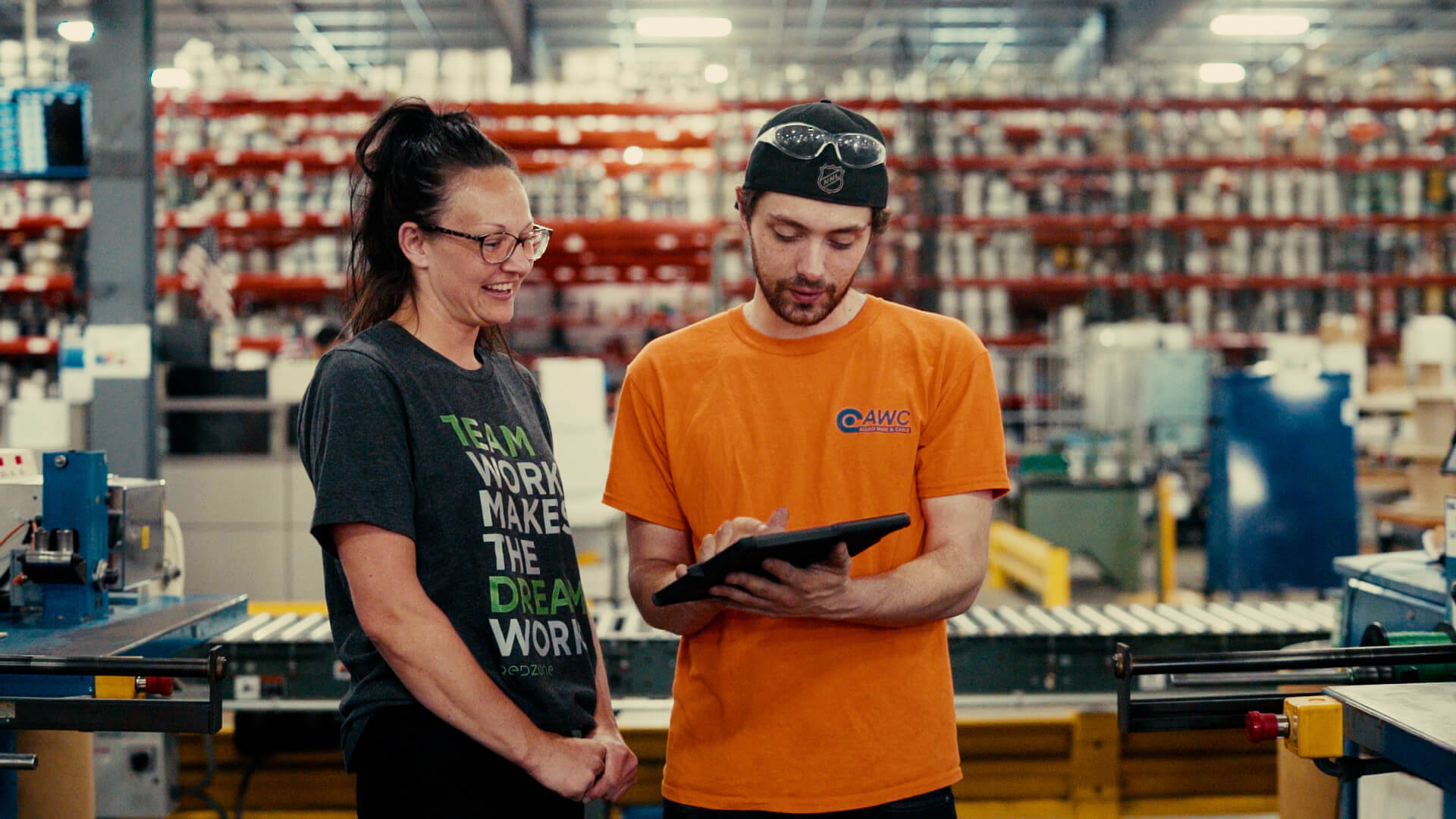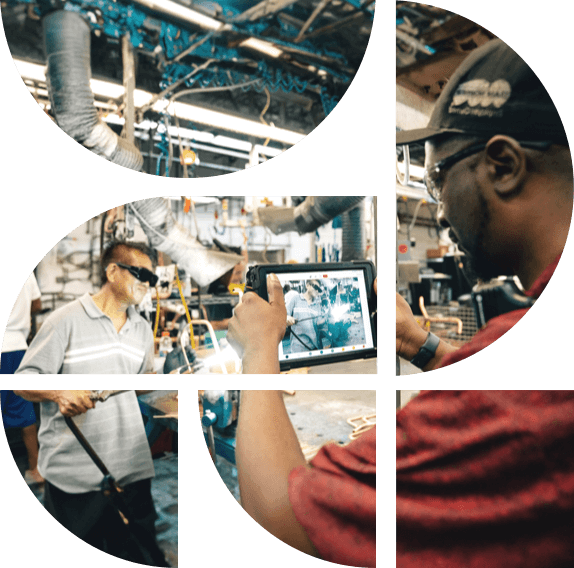July 7, 2023

In an era characterized by neverending digital disruptions, the term digital transformation has become a buzzword. This often obscures the fact that it is still very relevant: the process that is shaping industries and redefining business strategies.
In few places is this shift more apparent than in the realm of manufacturing. Fueled by the rise of Industry 4.0 — the current phase of the industrial revolution — manufacturing processes are being redefined and enhanced. Industry 4.0, with its emphasis on interconnectivity, automation, machine learning and real-time data, is transforming the manufacturing landscape, leading to more efficient production processes, improved quality control and unprecedented levels of operational efficiency.
The urgency for digital transformation in manufacturing is more significant than ever before. With increased competition, a heightened focus on efficiency and the rise of the digital-savvy consumer, companies are finding it essential to adapt or risk being left behind. According to Gartner, “80% of CEOs are increasing digital technology investments to counter current economic pressures, including inflation, scarce talent and supply constraints.” This statistic underscores the pivotal role of digital transformation in ensuring business resilience and success.
In this guide, we unpack the dynamics of digital transformation in manufacturing and how Redzone is making Industry 4.0 an accessible reality for businesses today.
Digital transformation is a multifaceted term that involves leveraging new technologies, talent and processes to improve business operations and meet evolving customer needs. However, it transcends the realm of mere technological adoption. At its core, digital transformation is about rethinking traditional operating models and constructing new, more effective, digitally-enhanced ones. It is a strategic, organization-wide commitment to using digital advancements for both operational and customer-centric enhancements.
When applied to manufacturing, digital transformation denotes the systematic adoption of digital solutions to overhaul legacy or non-digital manufacturing processes and operations. The objective is to elevate business performance, and its impact is evident across various dimensions of manufacturing, including:
The year 2023 brings with it the promise of further advancements and challenges, making digital transformation more than just a luxury — it’s now a necessity for manufacturers who want to remain competitive.
Digital transformation in manufacturing plays several key roles, such as:
Insights from recent McKinsey research underscore the urgency and importance of digital transformation in the current industrial manufacturing landscape:
A recent study by the MPI Group underscores the transformative impact of digital trends in the manufacturing sector. It found that 63% of manufacturers have increased profitability, and 61% view their smart Industry 4.0 strategy as a competitive differentiator. In light of this, let’s examine the key digital transformation trends in manufacturing for 2023:
However, the journey towards a more digitally transformed future is not without its challenges, including:
Digital transformation in the manufacturing industry brings numerous benefits, enhancing various aspects of operations from cost efficiency to customer satisfaction. These advantages are primarily driven by the integration of advanced technologies such as automation, AI and IoT into manufacturing processes.
To illustrate how these modern solutions apply and the positive outcomes they can generate, we present three hypothetical case studies. These examples span different areas of the manufacturing industry and highlight how leveraging digital technologies can lead to improved operational efficiency, enhanced product quality, safer workplaces and increased environmental sustainability. Let’s explore each in detail.
Case Study 1 – Automation Robotics Firm
A global manufacturer of automation robots leveraged AI and IoT to streamline its production process. By incorporating AI, they automated their quality assurance process, substantially reducing defects. IoT sensors were employed for real-time machine monitoring, leading to a decrease in downtime. These digital interventions significantly increased productivity and resulted in annual cost savings.
Case Study 2 – Automotive Manufacturer
An automotive manufacturer used digital transformation to revamp its supply chain. They adopted cloud-based solutions for real-time inventory management, leading to a reduction in stock-outs. Furthermore, big data analytics provided insights into demand patterns, enabling better production planning and reducing overproduction. This led to improved customer satisfaction and increased market share.
Case Study 3 – Food Processing Company
A food processing company implemented digital technologies to improve worker safety and environmental sustainability. Robots were introduced for tasks in high-temperature areas, reducing workplace accidents. Additionally, the company adopted a digital energy management system that optimized energy use, reducing its carbon footprint. This not only enhanced the company’s brand image but also resulted in substantial cost savings from energy efficiency.
Redzone is at the forefront of driving digital transformation in the manufacturing industry, offering a suite of innovative solutions that enable manufacturers to:
Redzone’s solutions have garnered high praise from a multitude of satisfied customers:
Watch “A Power Hour with Capstone Nutrition & Natrol,” where the Capstone team discusses the miraculous results they’ve achieved with Redzone.
Watch “A Power Hour with Kainos Capital,” where the company’s managing director discusses the importance of digital collaboration using Redzone software solutions.
Watch “A Power Hour with Taylor Farms,” where the president of a Taylor Farms factory in Chicago discusses leveraging Redzone to lead his frontline team.
The path to digital transformation can be complex, but it need not be a journey taken alone. Collaborative partnerships can significantly amplify the benefits of digital transformation initiatives, providing:
According to Gartner, such collaborative strategies pay off — 36% of manufacturing enterprises realize above-average business value from their IT spending on digitization, at a reasonable cost when compared with their peers. This illustrates the immense potential of partnerships in propelling effective and efficient digital transformations in the manufacturing sector.
Key Takeaways
As we stand at the cusp of a new era in manufacturing, the importance of digital transformation cannot be overstated. It is the essential catalyst for enhancing efficiency, improving product quality and elevating customer satisfaction. It’s not about merely adopting new technologies — it’s about transforming the whole operational landscape.
Through Industry 4.0, we witness the integration of digital and physical systems, the importance of data analytics, AI, IoT and how these new tools are shaping the future of manufacturing. However, this is not a journey to be taken alone. Partnering with experts like Redzone can help navigate the challenges and accelerate the transformation, creating a more resilient and competitive business.
The road to the future might seem complex, but with the right tools and partnerships, manufacturers can successfully navigate this digital era. Digital transformation is not a question of if but when and how.
Discover how Redzone can support your digital transformation journey. Connect with us today.
Twice the Frontline Engagement: Priceless A spring in the step, a smil...


Contact us and let's begin empowering your frontline and growing your bottomline.
